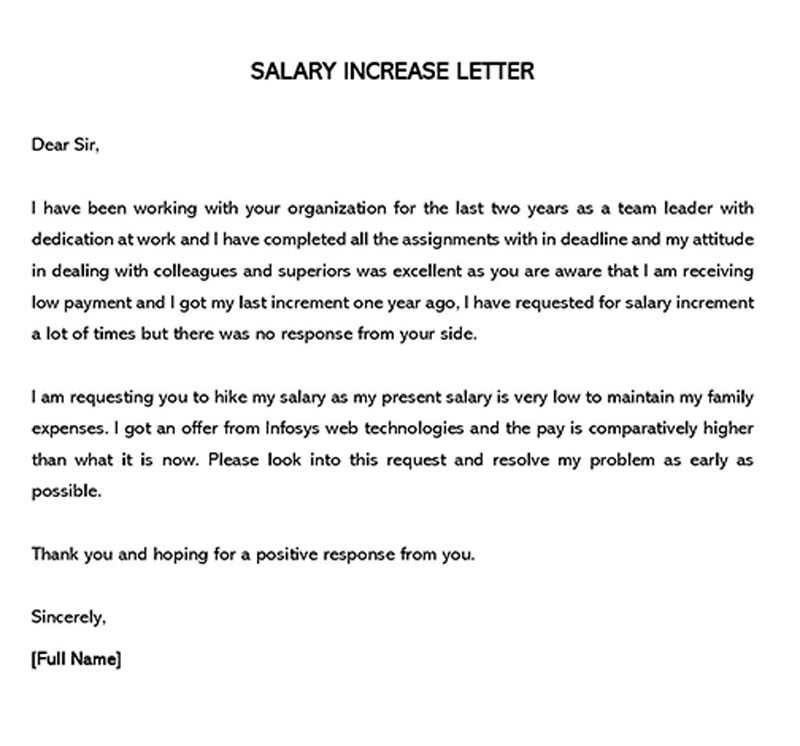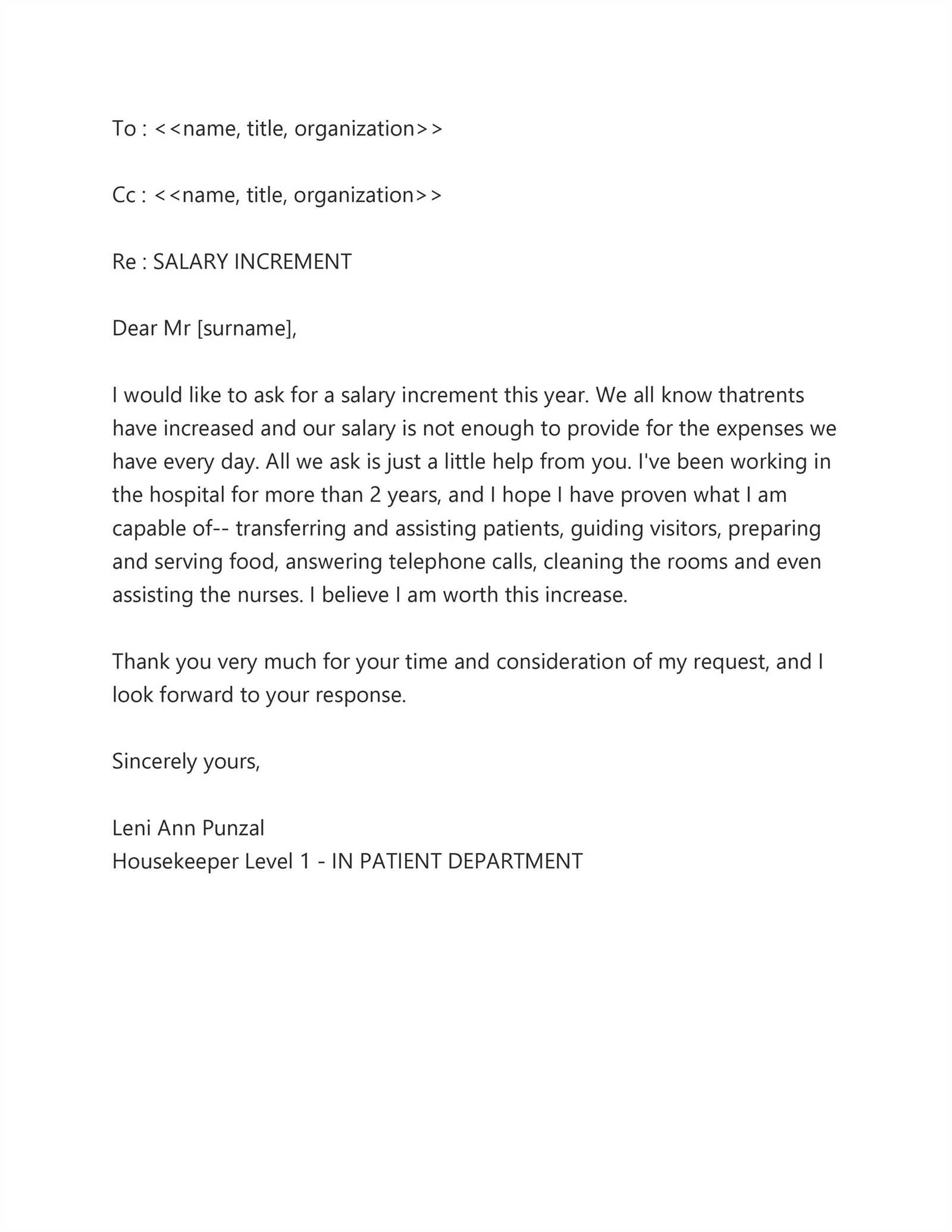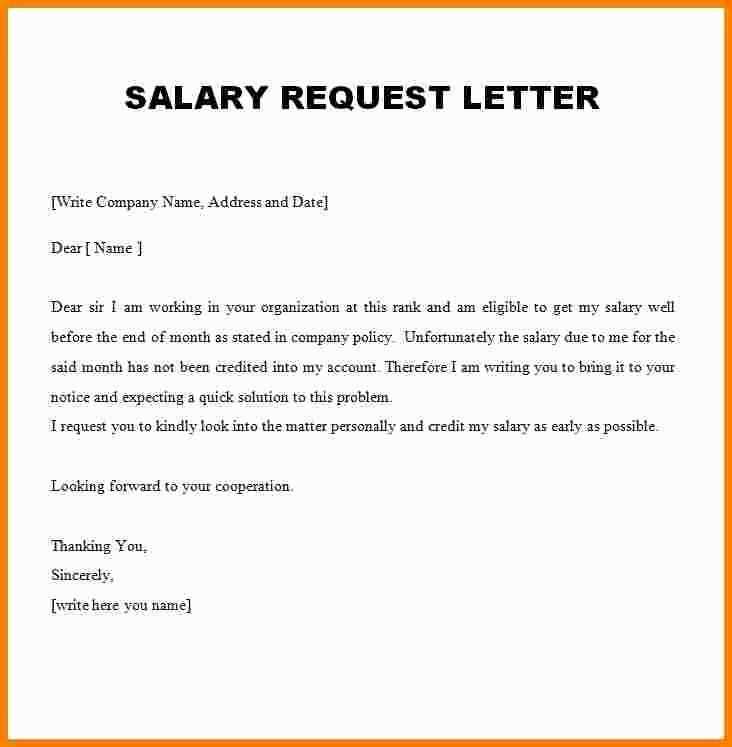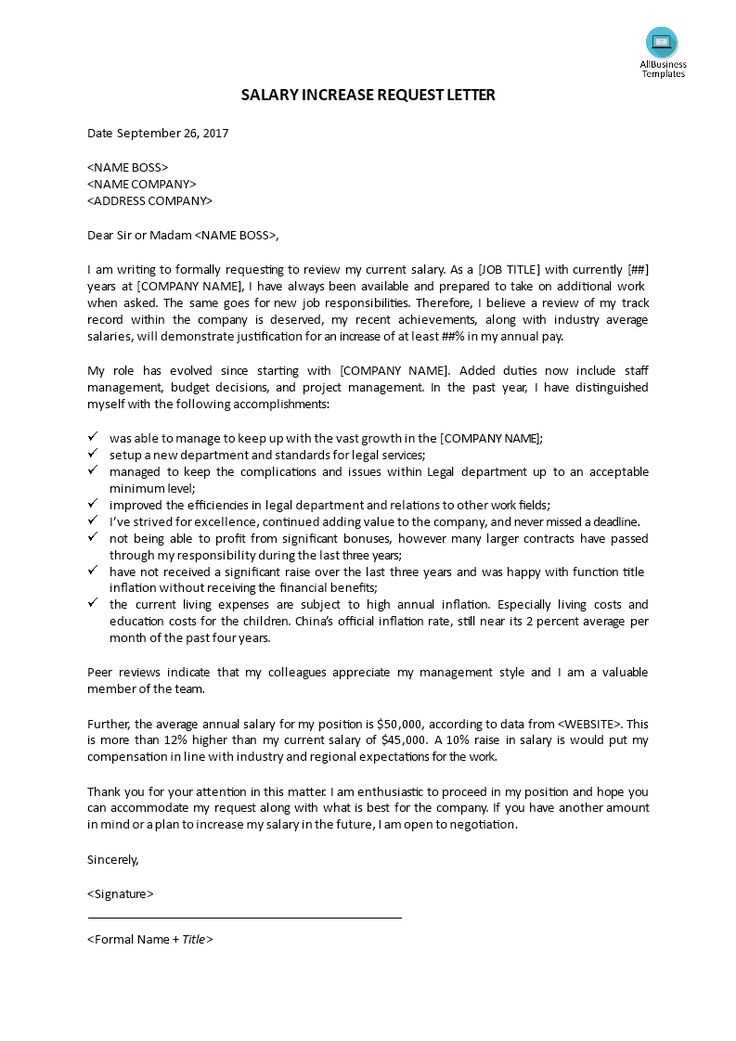Salary Increase Request Letter Template Guide

When seeking better compensation from your employer, the approach you take matters significantly. Crafting a clear and respectful communication is key to presenting your case effectively. It’s important to ensure your message is well-structured and demonstrates your value within the organization.
A well-crafted approach can help you highlight your achievements, emphasize your contributions, and justify why an adjustment is warranted. With the right words, you’ll increase your chances of a positive response, fostering a stronger professional relationship with your employer.
Timing plays a critical role in this process. Choosing the right moment to initiate such a discussion, coupled with a well-thought-out message, can make all the difference. Understanding how to express your professional worth can pave the way for successful negotiations.
How to Write a Salary Request Letter
When approaching your employer for a compensation adjustment, it’s essential to present your request in a structured and professional manner. A well-crafted message can reflect your achievements and support your case. The goal is to express your value within the company and communicate your desire for a better financial arrangement clearly and confidently.
Key Components of Your Message
Your communication should include specific elements that will strengthen your position. Here are the essential components:
- Introduction – Briefly explain the purpose of your message and your current role within the company.
- Achievements – Outline the contributions you’ve made to the organization and highlight any successful projects or goals met.
- Justification – Provide reasons why an adjustment is deserved based on market standards, your experience, and performance.
- Closing – End your message politely, expressing your openness to discuss the matter further and thank your employer for their time.
Tips for a Persuasive Message
To increase the likelihood of a positive response, consider the following tips:
- Be concise – Keep your message clear and to the point to avoid overwhelming the reader.
- Maintain professionalism – Even if you feel strongly about your case, it’s important to remain respectful and formal.
- Timing matters – Choose a time when your employer is more likely to be receptive to such discussions, such as after a successful project or during performance reviews.
Key Elements to Include in Your Letter
When preparing to communicate with your employer about revisiting your compensation, it’s important to craft your message with the right balance of professionalism and clarity. Each section of your communication plays a critical role in making a strong case for yourself. By including specific details and organizing your thoughts logically, you can increase your chances of a favorable response.
Essential Details to Mention

Here are the key points to include when outlining your request:
- Current Role – Start by briefly describing your position and responsibilities within the company.
- Professional Achievements – Highlight your key contributions and accomplishments, especially those that have directly benefited the organization.
- Market Comparison – Reference industry standards and comparable compensation packages to justify your appeal.
- Future Goals – Mention how you plan to continue contributing to the success of the company in the future.
How to Structure Your Message
While the content of your message is crucial, how you structure it also matters. Consider the following guidelines:
- Clarity and Conciseness – Keep your message clear, direct, and free of unnecessary information.
- Professional Tone – Maintain a polite and respectful tone throughout, focusing on your value rather than demands.
- Polite Closing – End with an invitation for further discussion and express gratitude for the opportunity to present your case.
Crafting a Professional Tone for Your Request
When approaching your employer about adjusting your compensation, the tone of your message plays a crucial role in how your communication is received. A well-balanced tone ensures that you come across as respectful and thoughtful, while still making a strong case for yourself. The goal is to express your intentions clearly without sounding demanding or overly casual.
Striking the Right Balance
To maintain a professional tone, it’s essential to avoid being too forceful or too meek. Your message should be assertive but polite, conveying confidence in your value without sounding entitled. Here are some pointers:
- Avoid aggressive language – Stay clear of terms that could be perceived as demanding or confrontational.
- Use positive framing – Focus on what you’ve contributed to the company and how you can continue adding value.
- Be confident but humble – Express your worth while acknowledging the company’s current goals and challenges.
Maintaining Professional Courtesy
Politeness goes a long way in any business communication. Even when discussing something as important as compensation, maintaining a courteous approach will help preserve your professional relationships. Ensure your language remains respectful and considerate, and always express gratitude for the opportunity to address the topic.
Common Mistakes to Avoid When Asking for a Raise

When seeking a better financial arrangement with your employer, certain missteps can undermine your efforts. Avoiding these mistakes will help ensure your request is taken seriously and increases your chances of a favorable outcome. The way you present your case can be just as important as the merits of the request itself.
Overlooking Timing and Context
One of the most common errors is bringing up the subject at the wrong time. Timing is critical, and choosing an inappropriate moment can hurt your case. Here are some points to consider:
- Timing is key – Make sure your conversation doesn’t occur during company challenges or economic downturns.
- Avoid emotional appeals – Don’t approach the topic during times of personal frustration or stress, as this may cloud your professional image.
Failing to Provide Solid Justifications

Simply asking for more without clear justification is another common pitfall. To strengthen your position, you need to provide evidence of your contributions and the value you bring. Failing to do so may leave your employer unconvinced. Instead:
- Showcase your achievements – Reference successful projects and contributions that have benefited the organization.
- Be realistic – Ensure your request is in line with industry standards and company policies.
When is the Right Time to Ask?
Timing is one of the most important factors when approaching your employer about adjusting your compensation. Bringing up the subject at the wrong moment can diminish your chances of success. Knowing when to initiate the conversation, based on both your performance and the company’s situation, is crucial to getting a favorable response.
There are specific instances that are ideal for initiating such a discussion. Below is a table highlighting key factors that indicate the right time to bring up the topic:
| Ideal Timing | Reasons Why |
|---|---|
| After a Major Accomplishment | Successfully completing a significant project demonstrates your contributions and value to the company. |
| During Performance Reviews | Performance reviews provide an established context for discussing your professional growth and achievements. |
| After a Positive Company Milestone | If the company is doing well financially or has reached a key milestone, it may be more willing to consider your request. |
| When You Have a Market Comparison | If industry standards show that your compensation is below average, it’s the right time to address the gap. |
Understanding Employer Perspectives on Salary Increase Requests
When seeking a change in your compensation, it’s essential to consider how your employer views such discussions. Understanding their perspective can help you navigate the conversation more effectively and improve the chances of a positive outcome. Employers have various factors they take into account when evaluating these types of proposals, including business performance, market standards, and internal equity.
Key Considerations from Employers
Employers often weigh several factors before making decisions regarding adjustments to compensation. These factors influence whether they view your proposal favorably:
- Business Performance – If the company is experiencing financial difficulties or facing a downturn, they may be less likely to approve a change in compensation.
- Market Trends – Employers also evaluate the compensation landscape in your industry and location to ensure they remain competitive.
- Employee Contributions – Your employer will consider your performance, achievements, and the value you bring to the company when deciding whether an adjustment is warranted.
Employer Challenges in Approving Compensation Changes
Although your request may be well-founded, there are certain challenges employers face when approving such changes. Being aware of these can help you approach the situation with greater understanding:
- Budget Constraints – Limited resources or pre-allocated budgets may prevent employers from making adjustments, even if they recognize your contributions.
- Internal Equity – Companies strive for fairness among employees, so an employer must ensure any change aligns with the overall pay structure.
- Market Competitiveness – Employers may be hesitant if they perceive the adjustment to be above what is considered typical for your role or industry.